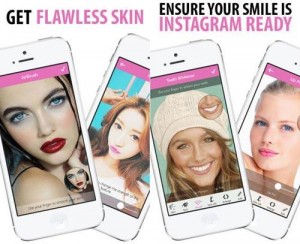I wish I had more friends … online
Does your child, tween or teen say this? “I wish I had more friends?” Self esteem and self worth for kids today living the social media life take this question very seriously. There is so much focus on their social media lives via Facebook, Instagram and many more social networking sites that focus on selfies, the thrill of getting likes, the disappointment when they don’t get them can lead to a downward spiral to anxiety and perhaps depression. They may feel, “OMG, I’ve lost it! Or over analyze and notice that one friend said that “I look hot”, while others haven’t commented or worse sent a mean comment back. Then they begin to question themselves.
Researchers noticed that the more time people spend on social media, the more depressed they become when comparing their lives to others. By constantly referencing the image perfection that is portrayed through social media accounts, it makes people feel bad about their own lives for not seeming as exciting, amazing and perfect. Indeed there are now many photo apps to adjust, alter their images to make them look thinner, fatter, sexier, have better complexions, whiter teeth, different hair color and on and on. 
On top of feeling depressed by comparing our lives to others, depending on the amount of likes and dislikes we do and do not receive, the depression may intensify.
Some of the pitfalls of all of this and selfie absorption has led to eating disorders. The number of teenagers admitted to hospital with eating disorders has nearly doubled in the last three years.
Some Important Stats about Body Image and Teens:
- “Over 80% of 10 year olds are afraid of being fat!!
- 53% of 13 year old American girls are unhappy with
their bodies. This number grows to 78% by the time
girls reach 17 - By middle school 40 to 70% of girls are dissatisfied with 2
or more parts of their body”
The responsibility for this unprecedented rise in eating disorders is being blamed largely on social networking. This makes perfect sense since young and vulnerable children, tweens and teens are spending such a huge chunk of their lives on line which then blurs comparisons and judgment. The constant pressure to portray and present themselves in a certain way for the online world t see is overwhelming and can lead to catastrophic results.
In today’s virtual world, getting “likes” on photos, posts or comments can result in a powerful sense of accomplishment and, even more, community and peer acceptance. The constant comparison to another’s physical image online can result in a sense of body dissatisfaction, and begin to trigger intense negative thoughts about body image.
Today’s struggles for kids online are huge! Not only do you have to look good and be interesting, but you have to be good at things and appear successful and they have to also seem to have an interesting life, and have lots of friends. Mix this all up and it can create a recipe for low self esteem and feelings of low self worth and damage to body image.
“What is self-esteem?
Self-esteem is how we value ourselves; it is how we perceive our value to the world
and how valuable we think we are to others.
Positive self-esteem gives us the strength and flexibility to take charge
of our lives and grow from our mistakes without the fear of rejection. Most importantly self esteem gives us the ability to BE TRUE TO WHO WE ARE!

What Can You Do As A Parent?
1. “Remind your daughter that she is more than the way she looks.
Tell her, and tell her often, what you value in her. While this seems simple, and may elicit an eye roll or two, it will help counteract the never-ending slew of perfect images directed at your girl.
2. Model body acceptance. Moms have a huge impact on their daughters’ body image. Don’t ask, “Do these jeans make me look fat?” or obsess out loud about food or put your appearance down. Avoid what Dr. Steiner-Adair calls the “morality of orality”—talking about food and yourself as “good” or “bad.” As in: I was bad today: I had pizza. So I’m not going to have dessert.
3. Be aware of your child, tween or teens cyber activities. What are they doing online, what social networks do they belong to, what websites are they visiting, who are their friends online? Are they visiting pro-anorexia, pro-bulimia sites frequently. Do they seem to care too much about what others think of them?”
A Final Thought to Ponder:
“The human need for social connection is well established, as are the benefits that people derive from such connections. On the surface, Facebook and other social networking sites provide an invaluable resource for fulfilling such needs by allowing people to instantly connect. Rather than enhancing well-being, as frequent interactions with supportive “offline” social networks powerfully do, the current findings demonstrate that interacting with Facebook and other social networking sites may predict the opposite result for young adults—it may undermine it.”





